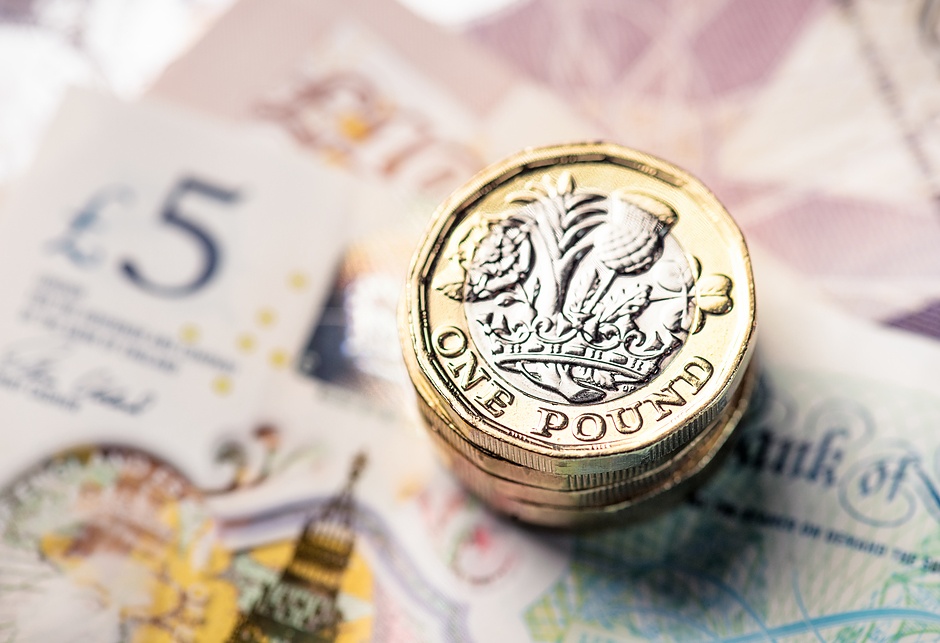Pound Sterling enters bearish passage as recession woes elevate
- Pound Sterling drops swiftly as the economic outlook dampens due to BoE’s aggressive policy.
- The United Kingdom economy could face recession as the interest-rate hiking spell is not over yet.
- UK Treasury Advisers said that the central bank should slow down the rate-hike spell to prevent the economy from a recession.

The Pound Sterling (GBP) turns weak amid deepening fears of a recession in the United Kingdom economy corner aggressive policy tightening by the Bank of England (BoE). Earlier, the GBP/USD pair faced pressure but overall sentiment for Pound Sterling is bullish as more interest-rate hikes from the UK central bank cannot be ruled out in order to bring inflation back to target.
United Kingdom’s Treasury Advisers showed concerns about economic growth due to the aggressive policy tightening by the central bank, which has elevated the burden on firms. Moreover, the UK’s housing sector is facing the wrath of higher borrowing costs and demand for property from first-time home buyers has dropped sharply.
Daily Digest Market Movers: Pound Sterling bears capitalize on upbeat US data
- Pound Sterling faces short-term pressure as hopes of further policy tightening by the Bank of England deepen fears of a recession in the United Kingdom.
- Advisers to UK Finance Minister Jeremy Hunt have flagged concerns over deepening recession risks as the BoE has sharply raised interest rates.
- The seven-member Economic Advisory Council is of the view that the central bank should slow down its rate-hiking spree, which is the fastest in three decades, as some economic indicators are suggesting a potential slowdown ahead for the economy.
- Inflation in the UK softened beyond expectations in June, but is insufficient to offer relief to BoE policymakers for skipping an interest-rate hike in August.
- Headline Consumer Price Index (CPI) softened to 7.9% in June while core CPI, which excludes volatile food and energy prices, fell to 6.9%. However, these declines are insufficient to allow the BoE to announce victory over inflation.
- In spite of elevating recession fears and the increasing burden on firms, the BoE looks set to raise interest rates again on August 3.
- The BoE is expected to announce an interest-rate hike of 25 basis points (bps), which will push interest rates to 5.25%.
- A Reuters poll this week conveyed that interest rates in the UK economy could peak around 5.75%.
- A survey from the UK's Royal Institution of Chartered Surveyors (RICS) showed Wednesday that 68% of respondents believe that the housing sector has turned vulnerable in the face of higher borrowing costs.
- Despite rising interest rates, car production has increased for a fifth straight month as chip shortages have eased. The Society of Motor Manufacturers and Traders (SMMT) reported an increase in the delivery of cars from factory gates by 16% on an annual basis.
- Meanwhile, the overall market mood is upbeat as the Federal Reserve (Fed) said it would consider incoming data for further interest rate hikes.
- The Fed announced a 25 bps interest-rate hike on Wednesday and pushed interest rates to 5.25%-5.50% range after a skip in June.
- An absence of confirmation of further policy tightening by Fed Chair Jerome Powell trimmed fears of a recession in the United States meaningfully.
- Powell also confirmed the central bank's staff no longer forecasts a US recession.
- After the Fed’s policy meeting hangover, investors are shifting their focus toward preliminary Gross Domestic Product (GDP) data, which will be published at 12:30 GMT. On an annualized basis, the US economy is seen expanding at a pace of 1.8%, lower than the 2.0% registered in the first quarter.
Technical Analysis: Pound Sterling extends downside toward 1.2800
The Pound Sterling continues its two-day winning spell and prints a fresh weekly high at 1.2976. The Cable rebounded firmly after discovering solid demand marginally below the 20-day Exponential Moving Average (EMA). The asset has resumed its north-side journey and is expected to reclaim the psychological resistance of 1.3000.
A breach above 60 in the Relative Strength Index (RSI) (14) will likely trigger the bullish momentum.
BoE FAQs
What does the Bank of England do and how does it impact the Pound?
The Bank of England (BoE) decides monetary policy for the United Kingdom. Its primary goal is to achieve ‘price stability’, or a steady inflation rate of 2%. Its tool for achieving this is via the adjustment of base lending rates. The BoE sets the rate at which it lends to commercial banks and banks lend to each other, determining the level of interest rates in the economy overall. This also impacts the value of the Pound Sterling (GBP).
How does the Bank of England’s monetary policy influence Sterling?
When inflation is above the Bank of England’s target it responds by raising interest rates, making it more expensive for people and businesses to access credit. This is positive for the Pound Sterling because higher interest rates make the UK a more attractive place for global investors to park their money. When inflation falls below target, it is a sign economic growth is slowing, and the BoE will consider lowering interest rates to cheapen credit in the hope businesses will borrow to invest in growth-generating projects – a negative for the Pound Sterling.
What is Quantitative Easing (QE) and how does it affect the Pound?
In extreme situations, the Bank of England can enact a policy called Quantitative Easing (QE). QE is the process by which the BoE substantially increases the flow of credit in a stuck financial system. QE is a last resort policy when lowering interest rates will not achieve the necessary result. The process of QE involves the BoE printing money to buy assets – usually government or AAA-rated corporate bonds – from banks and other financial institutions. QE usually results in a weaker Pound Sterling.
What is Quantitative tightening (QT) and how does it affect the Pound Sterling?
Quantitative tightening (QT) is the reverse of QE, enacted when the economy is strengthening and inflation starts rising. Whilst in QE the Bank of England (BoE) purchases government and corporate bonds from financial institutions to encourage them to lend; in QT, the BoE stops buying more bonds, and stops reinvesting the principal maturing on the bonds it already holds. It is usually positive for the Pound Sterling.
Author

Sagar Dua
FXStreet
Sagar Dua is associated with the financial markets from his college days. Along with pursuing post-graduation in Commerce in 2014, he started his markets training with chart analysis.

















